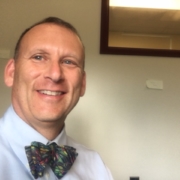CASA Advocate David Sky: Discovering the Depth of Compassion

Compassion is a quality shared by all CASA of New Hampshire volunteers. You could say it is the very quality that led David Sky to take on the role of a CASA advocate. At that time, David was studying Nonviolent Communication as developed by Marshall B. Rosenberg, PhD. This communication approach focuses on learning to hear our own deeper needs and those of others. As a result, we discover the depth of our own compassion. David desired to find a way to put the principles he was studying into practice “in the wild,” and after considering a few different programs, he chose CASA.
From the very first training session, CASA volunteers learn the importance of being aware of and checking their own biases. This fits with the tenets of Nonviolent Communication, where racial bias, discrimination, and judgements of who’s “good” or “bad” or what’s “right” or “wrong” with people have no place in the conversation. Very quickly upon beginning his work as a CASA, David was able to challenge his own mindset. “When someone does something differently than what you’re accustomed to, there’s sort of a natural tendency to view your own way as the right way because it’s what you know. So, you have to be open and realize that there are many ways—many dynamics, family cultures and systems—that work for families,” he explains.
Some of the challenges David faces as a CASA are of a more utilitarian nature; namely, how to fit volunteering in while also working full-time. He solves this challenge by staying organized, and practicing some smart scheduling. David considers the timing of when he accepts a new case, having learned that the first four to six weeks is a very busy period. “The beginning of a case is a little like drinking water from a fire hose. There’s a lot of stuff coming at you. You learn who the key players are and start to establish relationships. Then as the case goes forward you find your rhythm. You figure out how that particular case is going to fit into your life.”
He continues, “You have court hearings to attend, and DCYF (NH Division of Children, Youth and Family) case workers like to meet during the day. For the most part I’ve been able to take cases that are local (though that sometimes does change if a child ends up being placed further away, for example to live with a relative), and I try to arrange it so my appointments are either first thing in the morning, on my lunch, or last thing at the end of the day, so that I only have to shift my workday minimally. Other than that, I visit my kiddos after work or on the weekend.”
And that’s what it really comes down to: the kiddos. David says the most meaningful thing about being a CASA is connecting with the children he works with. “I really try hard to get to know them by visiting them in all their different modalities. I observe them visiting with their bio parents, in their out-of-home placement, in their daycare or school setting, and while participating in sports or hobbies, so I can see what makes them light up, or what makes them retreat inside themselves. I talk to them about what they’re passionate about and what they enjoy in life.”
To David, “It’s a real gift to be able to be present with someone’s vulnerabilities and when someone opens up. And it’s a real gift to be able to serve and contribute in some way. It’s sort of like being trusted to hold a fragile egg and help carry it across the room.”
If becoming a CASA advocate is something you’re considering, here is David’s advice: “Follow your curiosity. Just because you show interest, apply, or even start the training, there’s no obligation to take a case. Keep learning about it. I found the training helpful and comforting, so I was able to take on a case. Signing on to take that first case seemed like a big commitment, but they understand that life happens. The intention is that if you’re able and if your life doesn’t change, you’ll stick with that case.” And stuck with it David has – for seven years, 10 cases, and to the benefit of 14 children, and counting.
If you would like to become a CASA volunteer, consider attending an upcoming virtual information session to learn more, or submit an application today.




